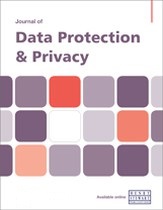Ethics in Artificial Intelligence: A disjoint between knowing and acting
Abstract
While artificial intelligence (AI) is changing our daily lives, its impacts and risks to privacy remain one of the top agendas in its developments. As AI frequently relies on massive and seemingly irrelevant data to discover insights that are sometimes unexpected, the technology is at odds with the traditional data protection principles of data minimisation and transparency. Aware of the challenge, data protection authorities (DPAs) are looking for a paradigm shift in how personal data privacy may be respected in the AI era. Now many of them have started to advocate the idea of the ethical use of AI. There is evidence, however, to suggest that there is a disjoint between knowing the importance of ethics and acting ethically. This paper describes the current efforts by DPAs in promoting ethics in AI, discusses the flux concept of ethics, suggests the reasons behind the disjoint between the ethical ‘knowing’ and ‘acting’, and proposes how education, promotion of desired behaviours and a cross-functional approach may help bridge the gap.
The full article is available to subscribers to the journal.
Author's Biography
Henry Chang is an adjunct associate professor with the Department of Law, University of Hong Kong. Henry was the IT (information technology) adviser at the Office of the Privacy Commissioner for Personal Data, Hong Kong, advising the Commissioner and his office on the privacy impact of technological developments and also on the investigation of complex cases that involved ICT (information and communications technology). He was the founding chair of the Technology Working Group of the Asia Pacific Privacy Authorities. Prior to engaging in data protection, Henry worked in the areas of cybersecurity and technology risk compliance. He also helped to draft the antispam law in Hong Kong, built its enforcement capability and designed the Hong Kong Do Not Call Registers. His research interests are technological impacts on personal data and privacy.
